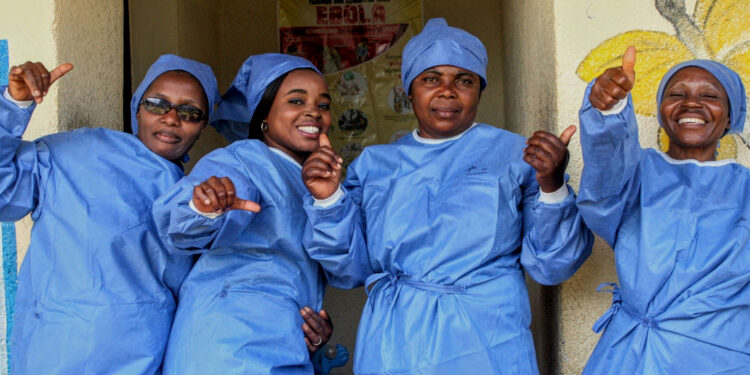Ugandan health authorities announced on Tuesday that the last eight people who had been receiving treatment for Ebola had fully recovered and were sent home. With no new cases reported, the outbreak first identified last month appears to be under control.
The World Health Organization described the recovery as a milestone that “reflects the power of Uganda’s quick and coordinated response.”
The majority of Ebola cases were treated at Kampala’s main referral hospital, where medical teams worked to contain the virus.
The outbreak’s only fatality was a male nurse who died just before officials confirmed the presence of Ebola in the capital on 30 January. Some of his relatives later tested positive and were hospitalised for treatment.
Tracking down individuals who may have been exposed to the virus is crucial in preventing its spread. According to Health Minister Jane Ruth Aceng, at least 265 people were identified as possible contacts, with 90 of them already completing a monitoring period to ensure they showed no symptoms.
No licensed vaccines exist for the Sudan strain of Ebola, which caused the latest outbreak. However, researchers have launched a clinical trial to assess the effectiveness and safety of an experimental vaccine in the hope of preventing future infections.
Uganda’s previous Ebola outbreak, which started in September 2022, lasted four months and resulted in at least 55 deaths before being contained.
Ebola spreads through direct contact with bodily fluids from an infected individual or contaminated objects. Common symptoms include fever, vomiting, diarrhoea, muscle aches, and, in severe cases, internal and external bleeding.
Experts believe that the virus typically jumps to humans through contact with infected wildlife, either by handling animals or consuming raw meat. First identified in 1976, Ebola was discovered during simultaneous outbreaks in South Sudan and Congo. The disease takes its name from the Ebola River, near the site of the initial outbreak in Congo.




































